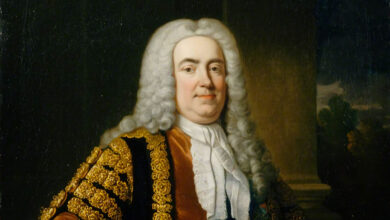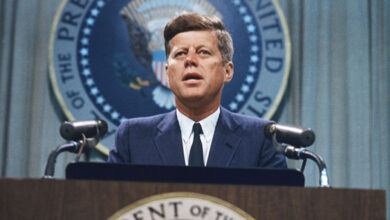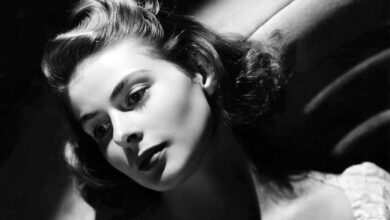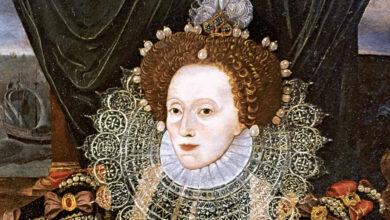“Speak softly and carry a big stick; you will go far.” – Theodore Roosevelt
Podcast: Play in new window | Download
Subscribe: Spotify | Amazon Music | Youtube Music | RSS
Theodore Roosevelt Biography
The man who would become the 26th president of the United States of America, Theodore Roosevelt, Teddy or TR to his friends, was born on October 27, 1858. He was the second of four children to arrive at the four-story brownstone house at 28 Easy 20th Street in Manhattan New York to parents Martha Stewart Bulloch, a socialite known by the nickname “Mittie” and Theodore Roosevelt Sr who was a businessman in the glass trade and somewhat of a philanthropist.
The first child in the family was Teddy’s older sister, Anna. The third was little brother Elliott and the youngest was a sister called Corinne. It was Elliott who would become the father of Anna Eleanor Roosevelt, future first lady and wife of Franklin D. Roosevelt. Teddy’s father was a fourth cousin of James Roosevelt I, who was the father of President Franklin D. Roosevelt.
As a child, Theodore suffered from asthma and his poor health would plague him greatly. His asthma attacks sometimes caused the boy to awake as if during a nightmare in which he felt he was being smothered to death. However, Theodore Roosevelt was as mischievous, inquisitive and energetic as the next boy with a fondness for animals and zoology, which led to him writing a paper at the age of 9 called, “The Natural History of Insects”.
He was influenced by his father who was a prominent New York cultural affairs leader who had helped found the Metropolitan Museum of Art and was encouraged to better himself as he read about his heroes who ranged from soldiers to the feats of his Southern forefathers. Such stories inspired him to become fitter and healthier so that he could be like them.
As far as is education was concerned, Roosevelt was homeschooled by his parents and by private tutors. The subsequent uneven coverage of subjects – he was strong in geography, history and biology for example but weaker by comparison in maths and classical languages, didn’t prevent him from entering Harvard in September 1876. Eighteen months later, Theodore would be devastated by the death of his father, but went on to do well at Harvard, participating in rowing and boxing and even becoming editor of The Harvard Advocate. Theodore Roosevelt graduated magna cum laude on June 30, 1880, and entered Columbia Law School but would soon drop out of law school in favour of politics.
By the time Roosevelt was 22, he had fallen in love with the socialite Alice Hathaway Lee and they were married on his 22nd birthday. Alice Lee Roosevelt, their daughter, was born on 12 February 1884 but her mother died two days later from kidney failure. Theodore Roosevelt’s mother had died only eleven hours earlier in the same house and he recorded in his diary “The light has gone out of my life”.
Roosevelt threw himself into his work and was soon put forward as the Republican party’s candidate for the Albany District House Seat. He became a member of the New York State Assembly and went on, in 1883 to become the Assembly Minority Leader.
In 1886, he became the Republican candidate for the position of Mayor of New York City, promoting himself as the “Cowboy of the Dakotas”. He came in third place with 27% of the vote. In December of the same year, Theodore Roosevelt married a family friend from his childhood, Edith Kermit Carow. They were married in London and honeymooned in Europe where Roosevelt led a group to the summit of Mont Blanc which led to him being inducted into the Royal Society of London. The couple had five children.
In 1894, he was approached by a group of reform Republicans about running again for Mayor of New York. He declined, mostly due to influence from his wife, who later said that she would not interfere again as it was obvious that Theodore Roosevelt had missed an opportunity. Instead, he would radically reform the New York Police Force during his two years as president of the board of the New York City Police Commissioners. Turning around a police force which was described as the most corrupt police force in America at the time.
Due to his prowess as a history scholar and his expertise when it came to all things Navy, and also partly due to some encouragement by his close friend, Congressman Henry Cabot Lodge, Theodore Roosevelt was appointed Assistant Secretary to the Navy in 1897 by President William McKinley. As the Secretary of the Navy, John D. Long was in poor health, Roosevelt found that major decisions were being left to him and he wasted no time in pressing his own agenda.
When the battleship Maine exploded in Havana, Cuba, the secretary left office, Theodore Roosevelt took over and pushed for war with Spain, which duly came in late April 1898.
Roosevelt resigned from his civilian office and formed the First US Volunteer Cavalry Regiment in May of the same year. Active only for the duration of the war, the regiment became known as the Rough Riders. Under the leadership of Lt. Col. Roosevelt, the Rough Riders became famous for their charge up Kettle Hill on July 1, 1898, for which, in 2001, Roosevelt was posthumously awarded the Medal of Honor for his actions. After the war, and upon re-entering civilian life, Theodore Roosevelt would forever be known as The Colonel. In November of 1899, vice-president Garret Hobart died and in 1900 Roosevelt got the job. The first year of office was uneventful and didn’t sit well with Roosevelt’s aggressive demeanor. However, on September 6, 1902, all that would change when a lone anarchist shot President McKinley while in Buffalo, New York. Although there were initial reports that the president’s condition was improving, he died on September 14 and Roosevelt was sworn in as the 26th President of the United States at Ansley Wilcox House. He promised to keep McKinley’s cabinet and promised to continue with his policies.
In 1904, Theodore Roosevelt won a landslide victory for the office of the President in his own right. Before his inauguration ceremony though, Roosevelt declared that he would not be seeking another term.
His presidency is remembered for bringing the office of the president to centre stage and for promoting the idea of conservationism and for putting the environment on the national agenda and he was admired by Conservatives for his military values. He also kicked off the discussions that would eventually lead to the modern welfare state.
Theodore Roosevelt was succeeded as President by William Howard Taft in 1908 and although Roosevelt was influential in Taft’s election, he didn’t get the credit he felt he deserved.
Shortly after he left office, in March 1909, Roosevelt went on safari to Africa, landing in Mombasa and traveling to the Belgian Congo, now the Democratic Republic of the Congo, then following the Nile to Khartoum. Although the expedition was conducted in the name of science, it was also a political and social hunting event that bagged over 11400 animal specimens which were shipped back to the Smithsonian in Washington who took years to mount them all.
In 1912, a group of Republicans from Ohio endorsed Roosevelt for the party’s nomination for president. Roosevelt had lost all faith in Taft and called him a feeble leader. He eventually accepted the nomination and Taft saw the writing on the wall for his career.
During the campaign though, on October 14, 1912, Theodore Roosevelt was shot by saloonkeeper, John Flammang Schrank in Milwaukee, Wisconsin. As an experienced hunter, Roosevelt declared that as he was not coughing up blood, the bullet had not reached his lung and so he declined to go immediately to hospital and went on instead to deliver a 90 minute speech while blood soaked into his shirt, saying to the crowd “Ladies and gentlemen, I don’t know whether you fully understand that I have just been shot, but it takes more than that to kill a Bull Moose.” X-Ray’s later revealed that the bullet had lodged itself in his chest muscle and that it would be less dangerous to leave it in place. It stayed there for the rest of his life.
Woodrow Wilson became the next president with 435 electoral votes. Roosevelt won 88 with Taft managing just 8.
Theodore Roosevelt, instead of heading for the White House, decided to go on another adventure and in 1913 found himself on an expedition to the forests of South America. During the expedition, Roosevelt suffered a leg injury that led to him contracting a tropical fever which resembled malaria. He would subsequently suffer from flare-ups of the symptoms for the rest of his life.
When World War I started in 1914 Roosevelt was a strong supporter of the allies and demanded that Germany be brought to heal and he angrily denounced the foreign policy of President Wilson. Roosevelt’s youngest son Quentin was shot down behind enemy lines in 1918 and this may have been the final blow that would eventually lead to Theodore Roosevelt’s death which came in the early hours of January 6, 1919.
His last words were “please put the light out James” to James Amos, a family servant.
Woodrow Wilson’s vice president, Thomas R. Marshall said that “Death had to take Roosevelt sleeping, for if he had been awake, there would have been a fight”.
Podcast: Play in new window | Download
Subscribe: Spotify | Amazon Music | Youtube Music | RSS




